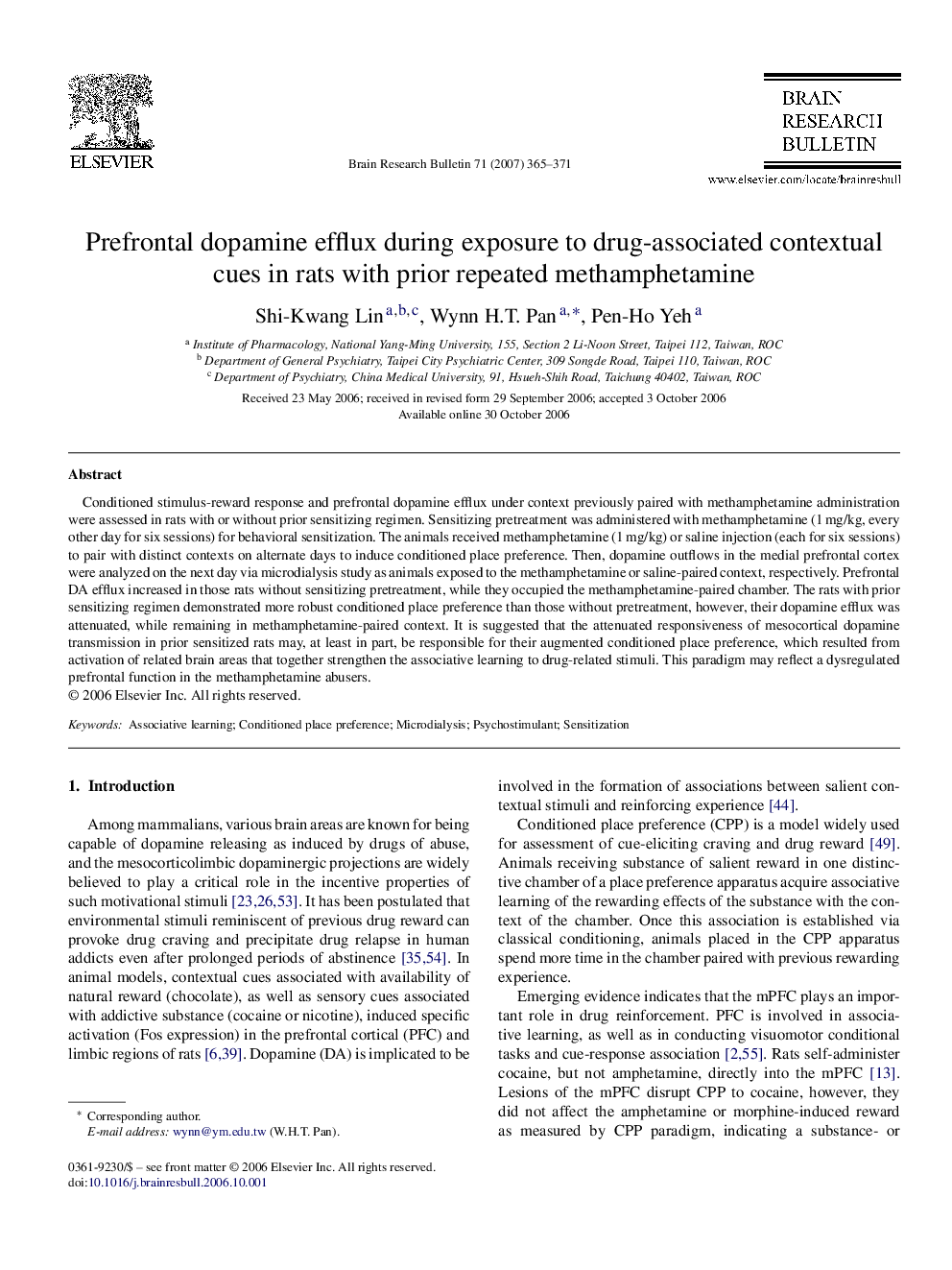| Article ID | Journal | Published Year | Pages | File Type |
|---|---|---|---|---|
| 4320046 | Brain Research Bulletin | 2007 | 7 Pages |
Abstract
Conditioned stimulus-reward response and prefrontal dopamine efflux under context previously paired with methamphetamine administration were assessed in rats with or without prior sensitizing regimen. Sensitizing pretreatment was administered with methamphetamine (1Â mg/kg, every other day for six sessions) for behavioral sensitization. The animals received methamphetamine (1Â mg/kg) or saline injection (each for six sessions) to pair with distinct contexts on alternate days to induce conditioned place preference. Then, dopamine outflows in the medial prefrontal cortex were analyzed on the next day via microdialysis study as animals exposed to the methamphetamine or saline-paired context, respectively. Prefrontal DA efflux increased in those rats without sensitizing pretreatment, while they occupied the methamphetamine-paired chamber. The rats with prior sensitizing regimen demonstrated more robust conditioned place preference than those without pretreatment, however, their dopamine efflux was attenuated, while remaining in methamphetamine-paired context. It is suggested that the attenuated responsiveness of mesocortical dopamine transmission in prior sensitized rats may, at least in part, be responsible for their augmented conditioned place preference, which resulted from activation of related brain areas that together strengthen the associative learning to drug-related stimuli. This paradigm may reflect a dysregulated prefrontal function in the methamphetamine abusers.
Related Topics
Life Sciences
Neuroscience
Cellular and Molecular Neuroscience
Authors
Shi-Kwang Lin, Wynn H.T. Pan, Pen-Ho Yeh,
